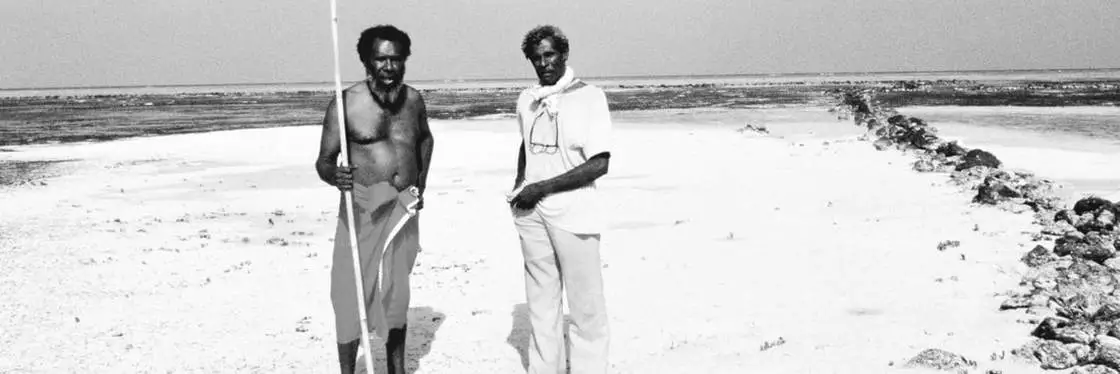High Court overturns 200 years of common law
Mabo v Queensland (No 2) (1992)
Facts of the case
The Murray Islands are a group of three islands (Mer, Dauar and Waier) that lie in the Torres Strait in Northern Queensland. The Meriam people have occupied these islands for thousands of years. However, Australian law did not recognise their traditional land ownership.
The Islands were annexed as part of Queensland in 1879. In 1912 the Governor ordered that the Islands (except for a leased area) be reserved for the use of the Aboriginal inhabitants.
Source: Tasmanian Electoral Commission
Source: National Library of Australia
In 1982, Eddie Mabo, David Passi and James Rice brought an action in the High Court seeking recognition of their prior and ongoing traditional rights to the land.
Before the matter was heard, the Queensland Parliament passed the Queensland Coast Islands Declaratory Act 1985 (Qld). It stated that the annexation of the Murray Islands wiped out any prior legal rights to the land and made it Crown land.
A majority of the High Court decided that the Queensland Act was inconsistent with the Commonwealth Racial Discrimination Act 1975 and therefore inoperative. The original Mabo claim then returned to the High Court in 1991.
Issues considered by the court
The Court had to decide whether the Meriam people held rights and interests in the land. If these rights existed, were they recognised by and enforceable under Australian law?
Decision
The High Court by a majority of six to one declared that the Meriam people were entitled to possession, occupation, use and enjoyment of the Murray Islands (“native title”).
The decision recognised a form of native title which reflected the entitlement of Aboriginal and Torres Strait islander inhabitants, in accordance with their laws or customs, to their traditional lands. The Court also held that native title was extinguished where the Crown granted or took an interest in the land which was inconsistent with native title.
Chief Justice Mason bench. Source: High Court of Australia
Background to the case
When the British colonists arrived and settled in Australia, they considered it was “terra nullius” (nobody’s land). However, in the Mabo case, Brennan J said that this “fiction” had “no place in the contemporary law of this country”. The rights and interests of Aboriginal and Torres Strait islander peoples in their land therefore “survived”.
The London Missionary Society came to the Murray Islands in about 1871. The Murray Islands were subsequently annexed to the Queensland Government in 1879. In 1882, the Queensland Government “reserved” the Island of Mer for the Meriam people and granted a lease of two acres on Mer to the London Missionary Society. Native title has been extinguished on this leased land.
‘There is no real appreciation of the vitriol, intolerance and scaremongering that went on in the debate on Mabo’
Former Aboriginal and Torres Strait Islander Affairs Minister Robert Tickner on 1 January 2017.
One of the Mabo scare campaigns revolved around people thinking that their homes and farms would be taken away through native title. The truth is that native title is extinguished on such properties.
Mabo overturned nearly 200 years of settled law that did not recognise the prior occupation of Australia by its Aboriginal and Torres Strait Islander peoples. Many more claims came before the Court.




